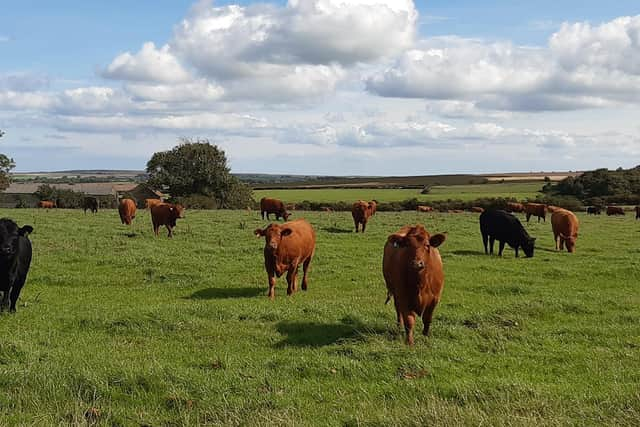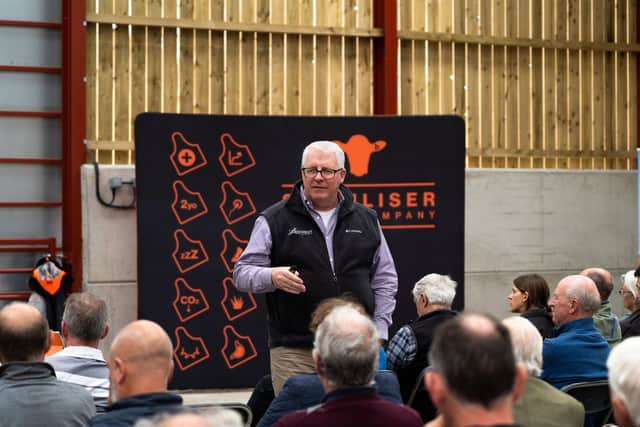American cattle producer visits North York Moors farmers to discuss genetic breeding
Lee Leachman is the CEO of Leachman Cattle of Colorado and comes from a long family history of farming and cattle production. His firm merged with URUS Genetics last month, a firm based in Wisconsin, which provides cutting-edge genetics to accelerate genetic progress and customised reproductive services within beef and dairy herds.
They will take the Leachman data around the Stabiliser cattle breed and use URUS techniques such as artificial insemination and elite to elite matings to produce the healthiest, most reproductive, profitable and easy to manager cattle.
Advertisement
Hide AdAdvertisement
Hide AdAs Leachman toured farms around the country last week, including Low Farm at Gerrick, Moorsholm between Saltburn and Whitby, he said the merger has created “the world’s first large scale beef genetics breeding business in the world”.


He predicts the merger will lead to the Stabiliser taking a 30 per cent market share for beef and dairy around the world within the next ten years and change the quality of the genetics available to suckler and dairy
herds.
The dairy sector already uses genetics in reproduction as does the swine and poultry sectors.
“Beef is the final frontier” says Leachman adding that every dairy cow in the country is sired by a top 100 bull whereas suckler herds are, on average, sired by a 50 per cent ranking bull giving scope for potential if suckler herds were made up of daughters of top ranking sires and were then mated to top one per cent ranking bulls.


Advertisement
Hide AdAdvertisement
Hide AdAt the event at Low Farm, farmed by John Aynsley who is a multiplier for the Stabiliser Cattle Company, Leachman said that in the past farmers have selected cattle for breeding based upon physical appearance, but, genetics allows farmers to look at other aspects such as how much the cow eats, how much milk she produces, how many calves she produces and how long before she can be bred from again.
In the end, successful farms come down to profit, Leachman told the audience of more than 60 people who attended the Moorsholm event.
He said: “People wanted bulls to look like this (large and muscly) and that was not a bad thing but they were inbred for hundreds of years.
"This is selecting for a purpose and that purpose is profit. That is the only objective and we don’t care what they look like.
Advertisement
Hide AdAdvertisement
Hide Ad"We bought into this idea that a big cow made money but did not measure profit. Once you start to measure profit and put genetics on it, profits start to dramatically increase.”
Also at the event were The Stabiliser Cattle Company, based in Driffield, that is now recognised as a pedigree organisation.
In 1997, five Yorkshire beef producers created the Beef Improvement Grouping Ltd to develop an improved suckler cow to replace the less-efficient dairy bred animals they were rearing.
They made visits to the Leachman Cattle Company in Montana and the USDA Meat Animal Research Centre in Nebraska, before selecting the Stabiliser® breed to develop in the UK as a purpose bred beef cow.
Advertisement
Hide AdAdvertisement
Hide AdThe basis for the breed is now a mix of red and black Angus, Simmental, Gelbvieh and South Devons with the Hereford that was in the genetic mix having been removed.
The Beef Improvement Grouping now trades as the Stabiliser® Cattle Company (SCC).
